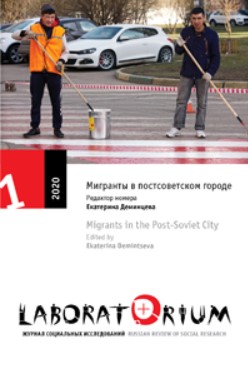От «заводской» до «мигрантской» школы: (пост)советская школьная сегрегация в городском пространстве
From "Factory" to "Migrant" School: (Post-)Soviet School Segregation in Urban Space
Author(s): Ekaterina DemintsevaSubject(s): School education, Migration Studies, Inter-Ethnic Relations, Ethnic Minorities Studies, Sociology of Education
Published by: Центр независимых социологических исследований (ЦНСИ)
Keywords: Children of Migrants; “Migrant” Schools; “Worker” Districts; Ethnic Minorities; Post-Soviet City;
Summary/Abstract: The article discusses the emergence of “migrant” schools in post-Soviet cities. On the basis of extensive fieldwork in the schools of Moscow Oblast and Tomsk, I show that children of labor migrants usually attend schools that in the Soviet period were oriented toward teaching children from low-status families. As a rule, these schools are located in residential districts that were seen as working class in the Soviet era and had an unofficial “marginal” status in the city. In post-Soviet times these schools began to enroll children with disabilities and those from socially disadvantaged families not only from the district but also from the city at large. As this study shows, it is these schools, which have retained since Soviet times the status and reputation of catering to children from low-status families, that host migrant children today. Such schools are attended by children not only from their immediate neighborhood but also from other districts in the city, as other educational institutions often refuse to enroll migrant children. The emergence of these “migrant” schools results from informal strategies of school administrations, as well as of parents, both “local” and migrant.
Journal: Laboratorium. Журнал социальных исследований
- Issue Year: 12/2020
- Issue No: 1
- Page Range: 152-182
- Page Count: 31
- Language: Russian

